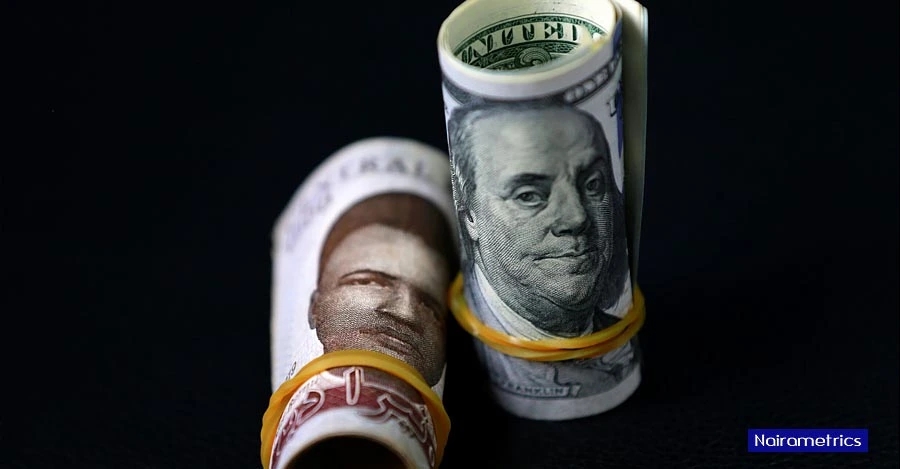The Central Bank of Nigeria’s (CBN) aggressive stance on the naira defence is projected to lead to an enormous interest payout, with the CBN set to incur approximately N1.01 trillion.
This figure emerged from the analysis of the Nigerian Treasury Bills (NTB) auction data for the first quarter of 2024, which showcases a robust subscription trend amidst rising rates.
The cumulative interest to be paid out by the end of these T-bills’ tenors will amount to approximately N1.01 trillion, underlining the substantial cost of defending the naira and curbing inflationary pressures.
On the other hand, investors seem to respond positively to the higher rates, as seen in the robust subscription rates, suggesting confidence in the CBN’s ability to manage the country’s fiscal challenges.
N21.17 trillion total subscriptions
The total subscription for the quarter stood at a staggering N21.17 trillion, emphasising the high demand for government securities. Despite this, the CBN’s total sales amounted to about N5.64 trillion, reflecting a cautious approach to liquidity management in the banking system.
The most recent auction on March 27, 2024, witnessed a total subscription of over N2.62 trillion across the 91, 182, and 364-day tenors. The total sales for this auction amounted to over N1.19 trillion (NB. Nairametrics observed conflicting information on the total sales for the 356-day tenor bill between what the CBN published on its database and what is available online in news reports. The data for this story is strictly based on information from the CBN database). This indicates the central bank’s selective bidding process, which saw a stop rate of 17% for the 182-day bills, a significant uptick from the previous auction’s 7.15% for the same tenor.
Rising Interest rates
A closer look at the quarter’s trend shows a gradual increase in the stop rates offered by the CBN. The stop rates on NTB have surged significantly from 2.44% on a 91-day tenor bill, 4.22% on a 182-day tenor bill, and 8.3995 on a 364-day tenor bill from the first auction in January to 16.24%, 17%, and 21.124% respectively from the last auction in March 2024. The heightened interest in the NTBs signifies a keen investor appetite for higher interest rates, providing a solid anchor for the fiscal stability of Nigeria.
Notably, the stop rate for the 364-day bill hit a high of 21.124% on the same date, reflecting tightening monetary conditions. This longer tenor bill attracted a mammoth subscription of approximately N2.48 trillion, with the CBN capitalising on this demand to offer a whopping N142.16 billion at this rate, costing the apex bank N239.61 million in interest payment.
The CBN, under Yemi Cardoso, has increased the monetary policy rate (MPR) by 600 basis points so far, from 18.75% to 24.75%. The apex bank’s decision to tighten monetary policy by increasing interest rates and auctioning larger volumes of treasury bills is a strategic move to address several macroeconomic concerns.
Higher interest rates are typically employed to control inflation; they make borrowing more expensive, thereby tempering spending and investment, which, in theory, should reduce the upward pressure on prices.
Additionally, these higher rates tend to attract foreign investors seeking better yields, leading to an inflow of foreign currency, which can help stabilise and potentially strengthen the Nigerian Naira.
The (CBN) recently disclosed that over 75% of bids received during the auctions of government securities held on March 1 and 6, 2024, were from foreign investors, showcasing their growing interest in Nigeria’s financial instruments.
What does this mean?
- The increase in the stop rates for Treasury Bills over the quarter signals an aggressive tightening of monetary policy by the CBN. The higher interest rates on these government securities could increase borrowing costs across the economy. Businesses might face higher expenses to finance operations or expansion, potentially slowing down economic growth.
- However, these higher rates are a boon for investors, who are now receiving better returns on their government securities investments. This attractiveness could enhance foreign investment inflows, further bolstering the naira’s position.
- The implications of the CBN’s fiscal manoeuvres for the broader economy are twofold. On the one hand, the robust demand for T-bills reflects investor confidence in the Nigerian economy and the CBN’s policy directions. On the other hand, the significant interest payout required to maintain these high rates emphasises the substantial fiscal burden on the CBN.
- The increased cost of defending the naira through T-bills may potentially limit the central bank’s manoeuvring capacity in other areas, such as developmental lending or currency interventions. Moreover, as global economic conditions remain uncertain, particularly with fluctuations in oil prices—a major revenue source for Nigeria—the pressure on the CBN could intensify.















